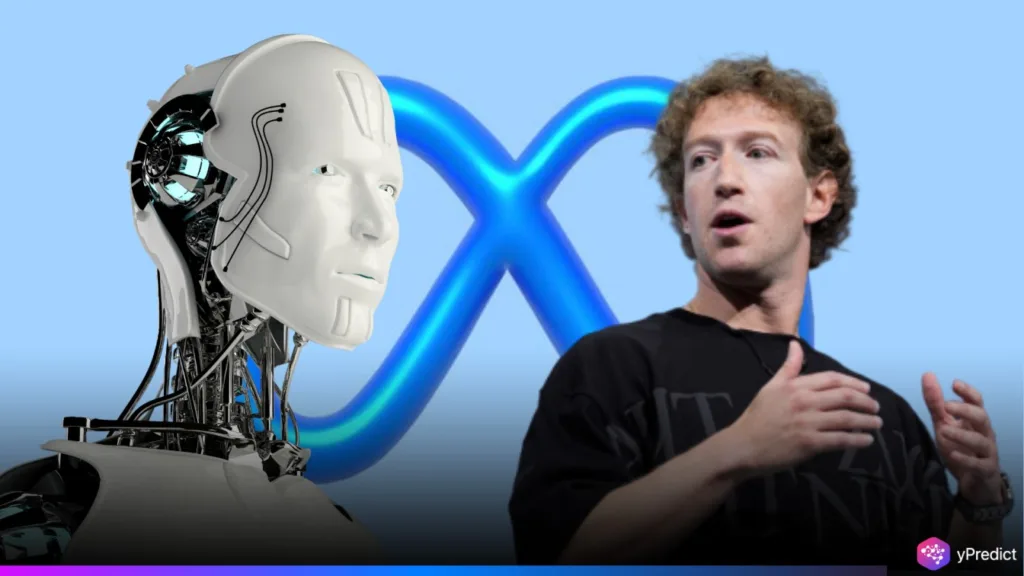
Meta CEO Mark Zuckerberg has announced the formation of a specialized team focused on developing artificial superintelligence (ASI), aiming to create AI systems that surpass human cognitive abilities. The initiative consolidates Meta’s AI research into a central group targeting artificial general intelligence (AGI), signaling a strategic shift beyond generative AI and metaverse ambitions.
This move positions Meta alongside other tech giants in the global AI race, while raising critical discussions around safety, open-source development, and long-term AI governance.
A Strategic Bet on Meta AI superintelligence
According to Bloomberg, Meta Platforms is intensifying its pursuit of artificial general intelligence (AGI) by launching a dedicated internal unit focused on developing systems that rival, or exceed, human cognitive capabilities. Spearheaded by Zuckerberg, this initiative reflects Meta’s broader ambition to lead the next wave of artificial intelligence innovation.
According to individuals familiar with the matter, Zuckerberg has taken a highly involved, hands-on role in forming the new group, informally known within the company as the “superintelligence team.” He has been personally involved in talent acquisition, meeting with AI researchers, engineers, and entrepreneurs at his homes in Palo Alto and Lake Tahoe to personally pitch Meta’s mission.
The team will include roughly 50 top-tier experts, many of whom Zuckerberg is recruiting himself. He has even reconfigured office layouts at Meta’s Menlo Park headquarters to ensure proximity between the new hires and senior leadership. Moreover, the new lab will be run by a revamped AI division, integrating existing initiatives while defining new long-term objectives. While AGI remains a distant and unclear milestone, Meta is gearing up to pursue it more aggressively than ever.
This internal rearrangement comes as Meta looks to recover from recent disappointments with its Llama 4 language model. Despite high expectations, the model’s performance failed to reach both internal benchmarks and external developer standards, causing delays in the introduction of its successor, codenamed “Behemoth.” This setback prompted Zuckerberg to increase his involvement in AI operations, resulting in the foundation of a new research division.
A New Strategic Direction Post-Metaverse
Despite its long-standing AI investments, Meta has faced challenges. The company’s AI division has experienced leadership friction, high staff turnover, and pressure to release competitive products at a breakneck pace. Critics have questioned the objectivity of Meta’s internal model evaluations, noting discrepancies between advertised benchmarks and real-world performance. These tensions contributed to Zuckerberg’s frustration and ultimately to his renewed leadership role in AI strategy.
Internally, he has launched a private WhatsApp group called “Recruiting Party” to coordinate hiring efforts among senior executives. This elite circle has been working around the clock to identify and contact top AI talent. Zuckerberg insists on making the first contact himself with potential recruits, offering seven- to nine-figure compensation packages to lure talent away from rivals such as OpenAI and Google.
Meta is striving to reclaim its edge in AI amid fierce competition following ChatGPT’s 2022 debut. While Microsoft and Amazon have poured billions into OpenAI and Anthropic, respectively, Zuckerberg highlights Meta’s ad-driven revenue as a key advantage, enabling self-funded, large-scale AI infrastructure.
Conclusion
Meta AI superintelligence team signals a bold leap into the next frontier of artificial intelligence. As Zuckerberg positions the company at the forefront of AGI development, the initiative underscores both the promise and responsibility of advanced AI. With aggressive talent acquisition and a centralized research strategy, Meta aims to shape the future of intelligent systems while navigating the ethical, technical, and regulatory challenges that come with it.





